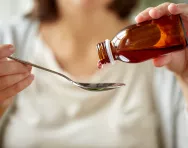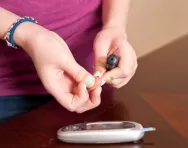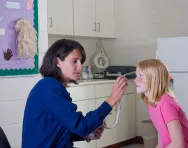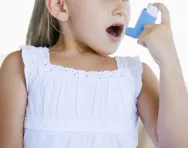TheSchoolRun.com closure date
As we informed you a few months ago, TheSchoolRun has had to make the difficult decision to close due to financial pressures and the company has now ceased trading. We had hoped to keep our content available through a partnership with another educational provider, but this provider has since withdrawn from the agreement.
As a result, we now have to permanently close TheSchoolRun.com. However, to give subscribers time to download any content they’d like to keep, we will keep the website open until 31st July 2025. After this date, the site will be taken down and there will be no further access to any resources. We strongly encourage you to download and save any resources you think you may want to use in the future.
In particular, we suggest downloading:
- Learning packs
- All the worksheets from the 11+ programme, if you are following this with your child
- Complete Learning Journey programmes (the packs below include all 40 worksheets for each programme)
You should already have received 16 primary school eBooks (worth £108.84) to download and keep. If you haven’t received these, please contact us at [email protected] before 31st July 2025, and we will send them to you.
We are very sorry that there is no way to continue offering access to resources and sincerely apologise for the inconvenience caused.
Medication in primary schools

At some stage of their primary school journey, most children will need to take medication at school, whether that’s antibiotics for an ear infection or insulin to control their diabetes. All schools should have a policy that dictates how they will administer medicines, so how can you expect them to help your child?
Medicines in schools: the law
Teachers are not legally or contractually required to give children their medicine, or to supervise them taking it. Those who agree to administer medication do so voluntarily.
In addition, teaching unions advise that they shouldn’t give children their medicine unless they’ve had appropriate information or training in how to do it, particularly in the case of technically complex medications like insulin injectors and adrenaline auto-injectors (AAIs, or EpiPens).
What medicines can schools store and administer?
Parents are generally encouraged to schedule their child’s medication so that they don’t need a dose during the school day. For example, a child who is on antibiotics to be taken three times a day can usually take all three doses outside school hours.
If, however, your child does need medication during school hours, the following guidelines must be followed.
1. Only prescription medication should be brought into schools. This includes antibiotics, asthma inhalers, AAIs , insulin syringes and so on. However, changes to EYFS Framework allow for non-prescription medications, with written parental consent, to be brought in to EYFS settings (see below). It's best to check with your child's school to find out what their policy states.
2. Medications must be brought into schools in their original container, as dispensed by a pharmacist, labelled with your child’s name. They must include instructions for administration, dosage and storage, as well as possible side effects. In some cases, schools will accept written instructions from a parent, but often, they will only administer medications if they come with the original patient information leaflet or written instructions from a doctor or pharmacist.
The exception to this is insulin, which can be brought into school inside an insulin injector pen or pump, rather than its original packaging.
3. You must provide written consent for your child to be given the medication. Most schools will have a form that you fill in. You will need to complete this form every time your child brings a new type of medication to school; it’s also likely to be reviewed annually.
4. All medications must be in date.
5. The smallest possible amount of medication should be brought into school. The exception to this is liquid medication, which can only be accurately and safely dispensed from the original container.
6. Medication should be kept in a secure place such as a locked cabinet or a sealed box in a fridge, according to storage instructions. Children must know where their medication is, and who to ask when they need it. However, medications that children may need to access quickly in an emergency should not be locked away. This includes asthma reliever inhalers and AAIs. These storage requirements apply not just on school premises, but also on trips and residential visits.
7. If a sharps box is required for the disposal of injectors, parents should obtain it on prescription and pass it on to the school.
8. You must collect any leftover medication that your child no longer needs, or medicines that have passed their expiry date, from the school. This should be done routinely at the end of every term.
9. Best practice is for schools to keep a record of children’s medication, including the date and time of each dose, how much was taken, and whether there were any side effects. This is mandatory for children in the Early Years Foundation Stage.
Non-prescription medicines in schools
The EYFS Statutory Framwork states: "Medicine (both prescription and non-prescription) must only be administered to a child where written permission for that particular medicine has been obtained from the child’s parent and/or carer. Childminders must keep a written record each time a medicine is administered to a child, and inform the child’s parents and/or carers on the same day the medicine has been taken, or as soon as reasonably practicable."
However, as this is tailored to EYFS settings, it's still best to check with your school to confirm if their policy includes the use of non-prescription medicines.
Who can administer medication in schools?
Although no member of school staff is obliged to administer medication, many schools have at least one person who can help children take their medicines.
Whenever possible, children should be encouraged to administer their medication themselves, under adult supervision. Children are also encouraged to carry their own devices, such as asthma inhalers, where appropriate. Clearly, in some cases, this is not possible: very young children, or those with special needs, may not able to administer their own medication or be in charge of looking after it.
Parents may also be allowed to come into school at an appropriate time during the day (such as lunchtime) to administer their child’s medication.
Schools and emergency medication
Since 2014, schools have been allowed to keep spare asthma reliever inhalers for use in an emergency. This recognises the fact that an asthma attack can be life-threatening, and that 86 per cent of children have been left without an inhaler after their own was lost, forgotten, broken or empty. It’s up to schools to decide whether they keep a spare inhaler, so it’s still important that your child has their own inhaler at school.
From October 2017, schools will also be allowed to keep a spare adrenaline auto-injector, or EpiPen, on the premises in case of a life-threatening anaphylactic reaction. Again, this is not compulsory, nor a substitute for sending your child’s own EpiPen to school, but is an extra layer of protection in case of emergency.








